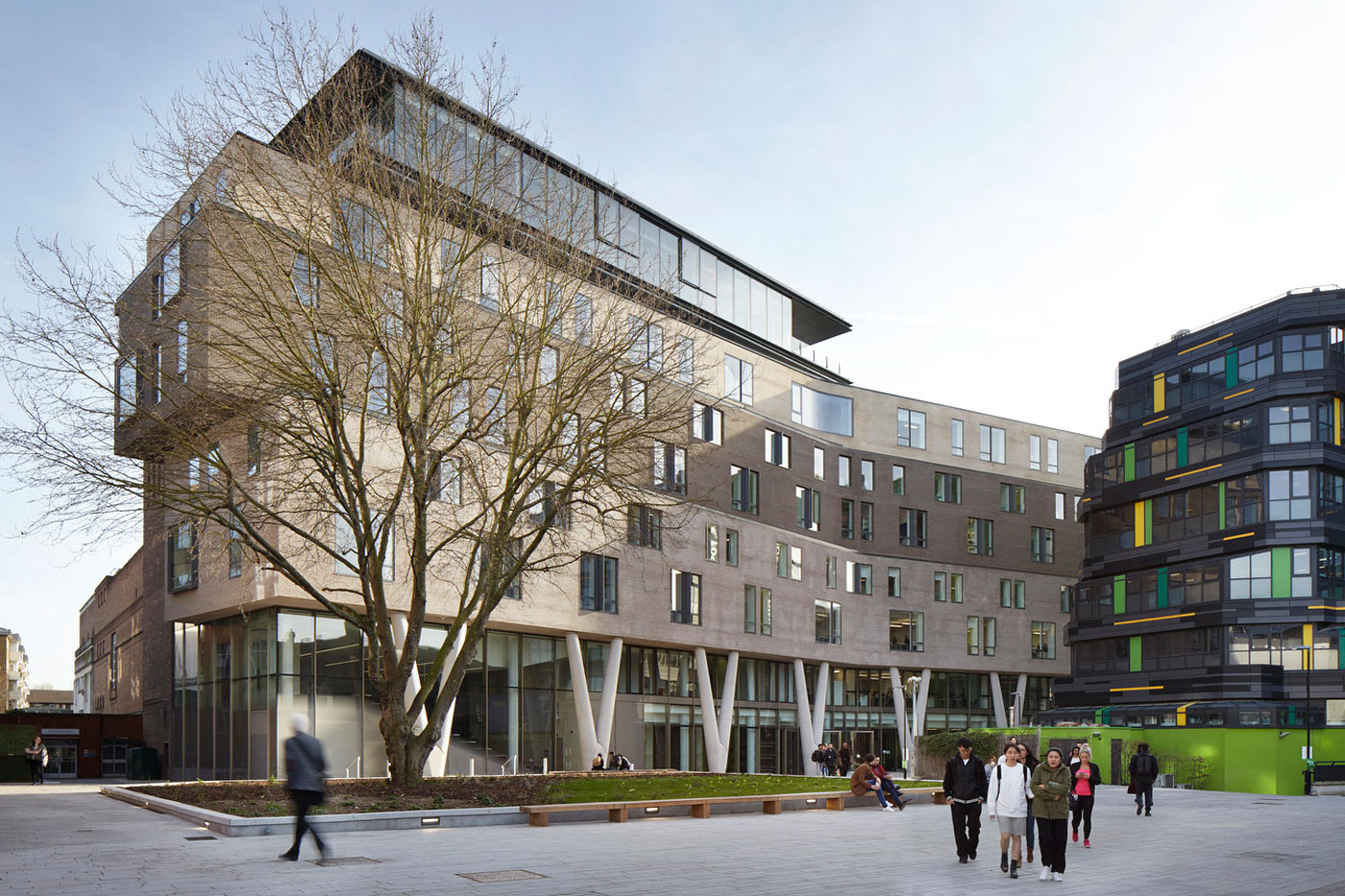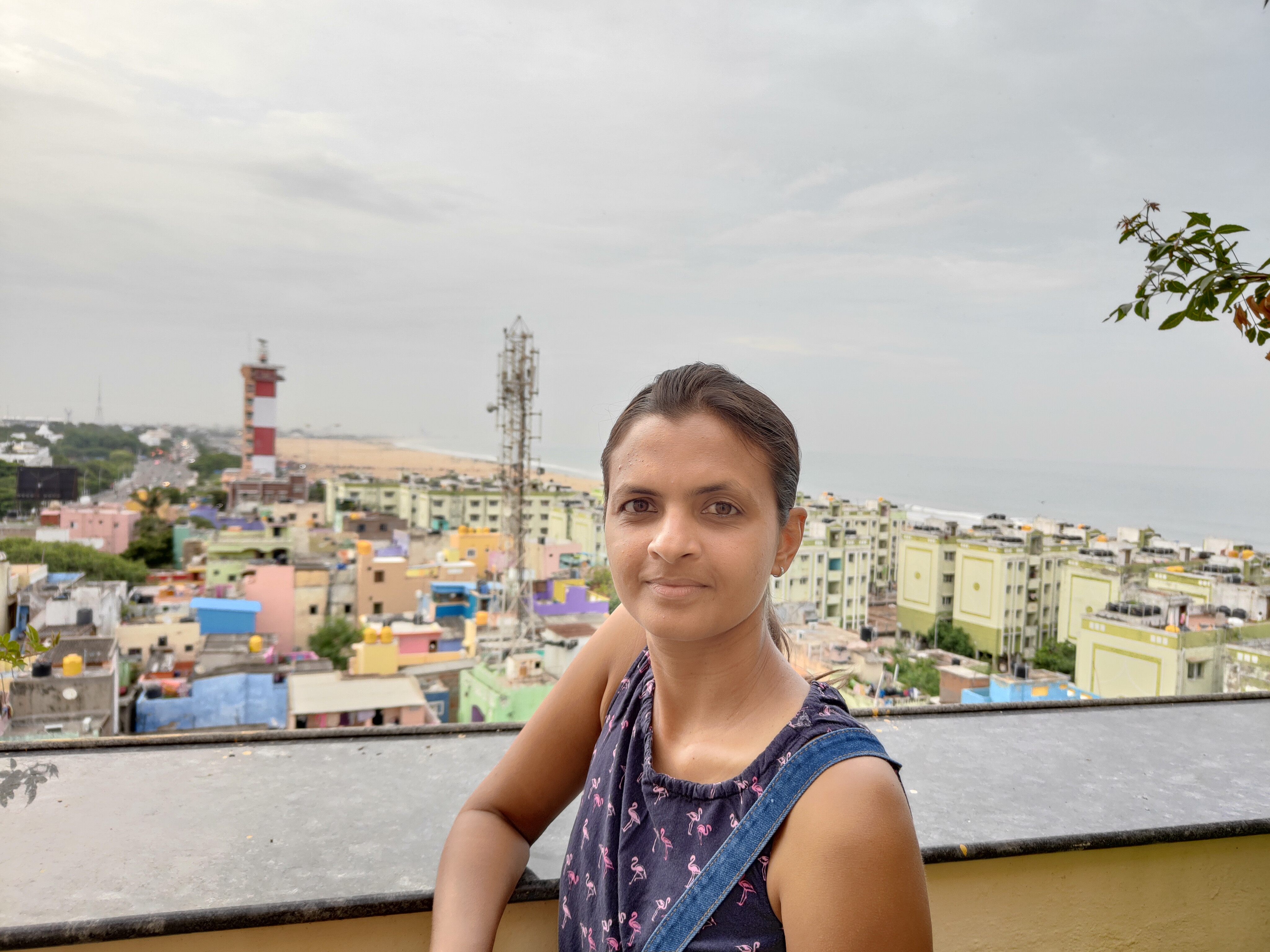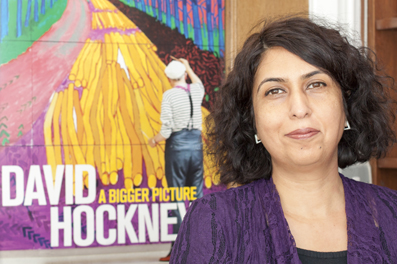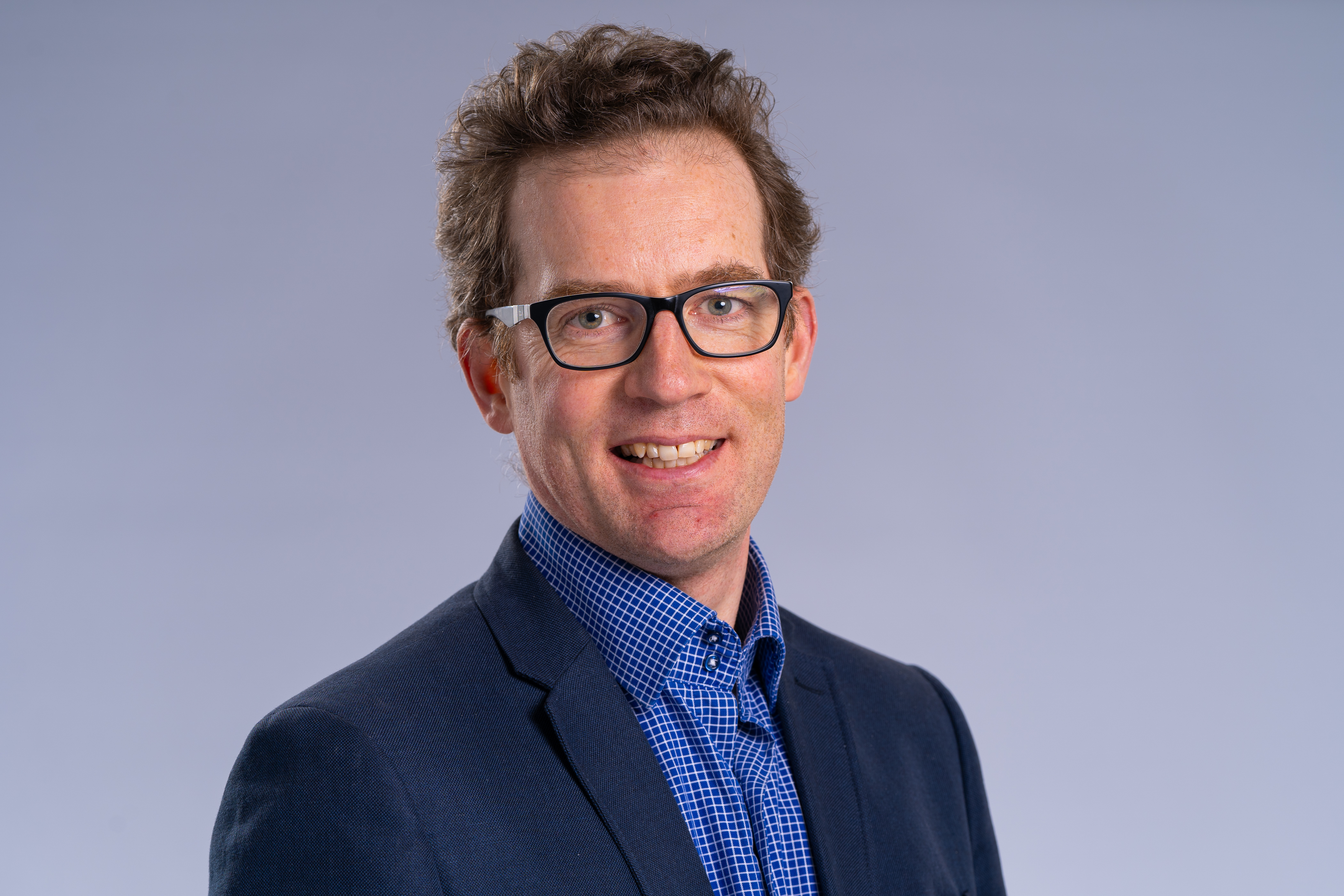Study options
- Starting in
- September 2025
- Location
- Mile End
- Fees
- Home: £12,250
Overseas: £25,500
EU/EEA/Swiss students
What you'll study
Develop an advanced and critical understanding of the development of international business from various intellectual perspectives. Examine many approaches, from neo-liberal and mainstream business studies, through to more critical views which engage with questions of power and resistance.
You will consider issues concerning world economy and development, and will examine new theories around development futures. You will gain formal training in research design and methods.
Thereafter, you may select optional modules to focus on your areas of interest. These might include study of the economics of development, global governance, international business strategy and social and political marketing, among many other options offered by the School of Geography and the School of Business and Management.
You will receive tailored research supervision and training suitable to your individual research interests in order to complete your dissertation.
This programme also offers students the opportunity to undertake an unpaid internship with London International Development Centre (LIDC) while studying. LIDC will take on up to four Masters students as interns per year.
Additional costs
Your dissertation can include fieldwork conducted in the UK or overseas, and students will be responsible for the costs associated with this.
Structure
- Three compulsory modules
- Four elective modules
- Compulsory 12,000-word dissertation
For full module information, please see the QMUL Module Directory.
Compulsory/Core modules
This module examines processes of economic "globalisation" and changes in international business over time. The focus is on the multinational firm in the context of trends in the world economy since the 1970s. It provides a critical and comparative perspective on the nature and scope of international business, theories of international trade and its regulation, and conceptualisations of global supply chains. It uses sector and country case studies to encourage an applied understanding of differentiated political-economic relationships, processes and outcomes.
The purpose of the module is to provide master's level research training in human geography and related social science disciplines. The module therefore covers core understandings of key concepts and approaches to human geography and social sciences research; subject specific research and transferable skills; and qualitative and quantitative, subject specific methodological and presentation techniques. This module will equip students with the skills necessary to independently design and implement an extended piece of primary dissertation research.
-theorising global development provides the theoretical framework underpinning the modules for MSc Development and International Business and MA Global Development programmes. The module will: i) introduce to a range of mainstream, alternative and decolonial theoretical approaches to `D/development¿; ii) challenge the common positioning of the Global South as a place where theories flow to rather than from, and as a collection of places in need of external (Northern) development interventions; iii) expose the spatial limits of mainstream / 'universal' theories of development in geography developed through narrow engagements with formal spaces of advanced capitalist economies in the Global North; iv) recognize the vital and dynamic ways in which the development trajectories of people and places in global South and global North are mutually constituted. Students will develop their conceptual understanding through key themes such as critical global development, the intersections of environment and development, transformations in the economy and work and post development.
The dissertation should include: a) a set of research aims clearly relating the dissertation and its aims to the relevant field of enquiry, b) a review and synthesis of previous studies and of the relevant theoretical, epistemological and methodological literature relating to the dissertation's field of enquiry and an examination of the place of such studies within the field of human geography; c) an examination of the study's research question(s) by means of analysis of new empirical material and/or original analysis of existing non-academic sources; and d) a full and critical discussion of methodology, research design and implementation.
Elective modules
This module explores theoretical, empirical and policy dimensions of patterns and processes of migration and mobilities in a global context and consciously across the global North/global South 'divide' from a scalar, relational and networked perspective. Although the focus will be on the nature and dynamics of contemporary movement of people, the module will also incorporate an analysis of the movement of information, goods and capital as framed within the 'new mobilities paradigm'. Theoretically, the module analyses the key framings of contemporary migration in relation to transnationalism, diaspora and post-national citizenship. In turn, it will interrogate the nature and links between transnationalism, multiculturalism and/or integration; the migration-development nexus; the politics of irregularity and 'illegality'; the relationships between the emergence of global cities and a migrant division of labour; the nature of global gendered mobilities and power and mobility as well as the interrelations between conflict, violence and mobility.
This course introduces contemporary theories and the empirical literature of the economics of developing countries with specific reference to public policy delivery. The course will address the problems with public policy delivery in developing countries and what solutions and strategies have been identified in the literature. The course will deal with debates such as centralised and decentralised delivery methods, political economy issues of corruption and state capture, and the role of incentives among politicians and bureaucrats in service delivery.
BUSM086 explores theoretical approaches explaining what markets managers choose to compete within, why and how. 'Traditional' competitive positioning, resource-based views are critically evaluated for their appropriateness in an increasingly networked, globalised, digitised and fluid environment. Contemporary approaches to strategic management, such as the importance of strategy process, business ecosystems, behavioural approaches and time/timing are analysed. From a variety of organisational contexts, we assess the extent to which firm strategy models may be applied to public sector/voluntary/entrepreneurial types of organisations and firms.
The module explores the economic-development geographies of people's everyday struggles to make a living in the contemporary global economy. Drawing on research within and across the Global North and Global South, this module engages with an exciting 'labour geographies' research agenda, concerned with how workers are capable of fashioning the geography of capitalism to suit their own needs and self-production; and to identify geographical possibilities and labour market strategies through which 'workers may challenge, outmaneuver and perhaps even beat capital' in different locations. The module seeks to expose the spatial limits of mainstream 'universal' theories in geography which presume that 'the economy' and 'labour' can be theorised solely from the perspective of the formal spaces of advanced capitalist economies in the global North.
This module explores how the management of global supply chains involves negotiating a multifaceted process of value creation and capture cutting across firms' and states' borders and from the environment. It maps the relations between firms and between firms and other actors and explores how supply chains are embedded in different environmental and social contexts. The module explores these issues by focusing on some of the largest corporate-controlled global supply chains in history, e.g. food and supermarkets, fashion retailers and mobile phone producers.
Assessment
- 67% Modules
- 33% Dissertation
- Module assessment is through coursework assignments, including extended essays and reviews
- You will complete a 12,000-word dissertation. An academic supervisor from the School of Geography or the School of Business and Management will provide guidance
Dissertation
Examples of past projects include:
- Struggles faced by Afghan Refugees during the Asylum Process in the UK’s Hostile Immigration Environment despite the supportive efforts of ‘Actors’ working on behalf of these ‘Asylum Seekers’
- How can website design influence Chinese consumers’ trust in Amazon?
- Examining the work-lives of young professionals in Bangalore’s private sector
-
Development and Diaspora: Retheorising the Working Lives of the Nigerian diaspora in London
- The Struggles faced by Afghan Refugees during the Asylum Process in the UK’s Hostile Immigration Environment
- Examining the Work-Lives of Young Professionals in Bangalore’s Private Sector
- A study of the Barriers to social, political and economic development in the Xinjiang autonomous region of China

—There are a lot of things to appreciate about studying at Queen Mary, but what I liked the most about the course was the opportunity to study in two different schools (Geography and Business schools), which provided a very diverse learning environment, not just in terms of culture and backgrounds, but also in terms of mind-sets, political views, and opinions towards development and globalisation.
Beatriz Isabel Ho Zhang, MSc Development and International Business
Teaching
Teaching for all modules includes a mixture of formal lectures and small group seminars. You will also receive tailored research supervision and training as you prepare an independent research project for your dissertation.
In the 2024 Postgraduate Taught Experience Survey (PTES), 100% of our students agreed staff were good at explaining things and enthusiastic about what they were teaching. 93% of students agreed their research skills had developed during their course and 87% felt better prepared for a future career as a result of their course.
If you choose to study part-time, the number of modules you take is reduced per semester. The full number of modules you need to complete the programme will be spread over two academic years.
Find out more about the School of Geography’s inclusive approach to learning, co-created with our diverse student body, enhanced by our world-leading research.
Where you'll learn
Facilities
- Use dedicated Masters study and computing spaces within the School of Geography.
- Access specialist qualitative, quantitative, and GIS computing software to support your learning and research.
- Access an unparalleled range of learning resources, special collections, and world-leading libraries within QMUL and the University of London, such as the QMUL Library and Senate House Library. Other specialist collections are accessible nearby, for example at the British Library.
Campus
Teaching is based at Queen Mary’s main Mile End campus, one of the largest self-contained residential campuses in the capital. Our location in the heart of London’s East End offers a rich cultural environment.
Queen Mary have invested £105m in new facilities in recent years to offer our students an exceptional learning environment. Recent developments include the £39m Graduate Centre, providing 7,700 square metres of learning and teaching space.
The campus is 15 minutes by tube from central London, where you will have access to many of the University of London’s other facilities, such as Senate House.

About the School
School of Geography
We are one of the leading centres for Geography, Environmental Science and Global Development scholarship in the world.
We were positioned 7th overall for the quality of our research in the latest UK nation-wide research rankings and 92% of our research was assessed as internationally excellent or world-leading (Research Excellence Framework 2021). The latest QS World University Rankings by Subject (2023) places us in the top 100 geography schools in the world.
We pride ourselves on our close research and teaching links with external partners including the Environment Agency, the Museum of the Home, the British Museum, Citizens UK and Natural England.
School of Business and Management
We invite our students to ask incisive questions, to challenge their assumptions, and to search for solutions to real-world challenges.
The School is accredited by the Association to Advance Collegiate Schools of Business (AACSB), which ensures that the highest standards of excellence in teaching, research, curriculum, and learner success are met.
In the most recent Research Excellence Framework (REF 2021), the School of Business and Management dramatically moved up the Times Higher Education rankings. Among 108 UK business schools, the School now ranks:
- 22nd for overall research quality (up from 39th in REF2014)
- 28th for research outputs (up from 34th)
- 12th for research impact (up from 24th)
- 21st for research environment (up from 59th)
Career paths
This programme will prepare you for a broad range of careers but will specifically deliver the research skills and substantive knowledge required by multinational businesses, social enterprises, NGOs, development organisations and government departments.
We integrate careers support into all our degree programmes to help you to maximise your potential and achieve your ambitions.
Previous graduates have gone onto work in business consultancies, development charities, commodity supply chain management, national government trades departments and financial trading.
Explore what our recent students have done after graduation and how their time studying on this programme prepared them for their career.
—As a government officer of a developing country, I strongly believe that the education that I received allowed me to enhance my technical skills and professional expertise to contribute to the development process and global integration of my country in such a competitive and dynamic global economic order.
Nizamettin Dogan Guner, MSc Development and International Business (2022)
Fees and funding
Full-time study
September 2025 | 1 year
- Home: £12,250
- Overseas: £25,500
EU/EEA/Swiss students
Unconditional deposit
Home: Not applicable
Overseas: £2000
Information about deposits
Part-time study
September 2025 | 2 years
- Home: £6,150
- Overseas: £12,750
EU/EEA/Swiss students
Unconditional deposit
Home: Not applicable
Overseas: £2000
Information about deposits
Queen Mary alumni can get a £1000, 10% or 20% discount on their fees depending on the programme of study. Find out more about the Alumni Loyalty Award
Funding
There are a number of ways you can fund your postgraduate degree.
- Scholarships and bursaries
- Postgraduate loans (UK students)
- Country-specific scholarships for international students
Our Advice and Counselling service offers specialist support on financial issues, which you can access as soon as you apply for a place at Queen Mary. Before you apply, you can access our funding guides and advice on managing your money:
Entry requirements
UK
Degree requirements
A 2:1 or above at undergraduate level in a relevant subject.
Other routes
Candidates that do not currently meet the set entry requirements may also have the option to study the Graduate Diploma in Humanities and Social Sciences. Meeting the required grades on completion of this programme will provide a pathway to study MA Development and International Business.
Find out more about how to apply for our postgraduate taught courses.
International
English language requirements
The English language requirements for our programmes are indicated by English bands, and therefore the specific test and score acceptable is based on the band assigned to the academic department within which your chosen course of study is administered. Note that for some academic departments there are programmes with non-standard English language requirements.
The English Language requirements for entry to postgraduate taught and research programmes in the School of Geography falls within the following English band:
Band 4: IELTS (Academic) minimum score 6.5 overall with 6.0 in each of Writing, Listening, Reading and Speaking
We accept a range of English tests and qualifications categorised in our English bands for you to demonstrate your level of English Language proficiency. See all accepted English tests that we deem equivalent to these IELTS scores.
Visas and immigration
Find out how to apply for a student visa.






